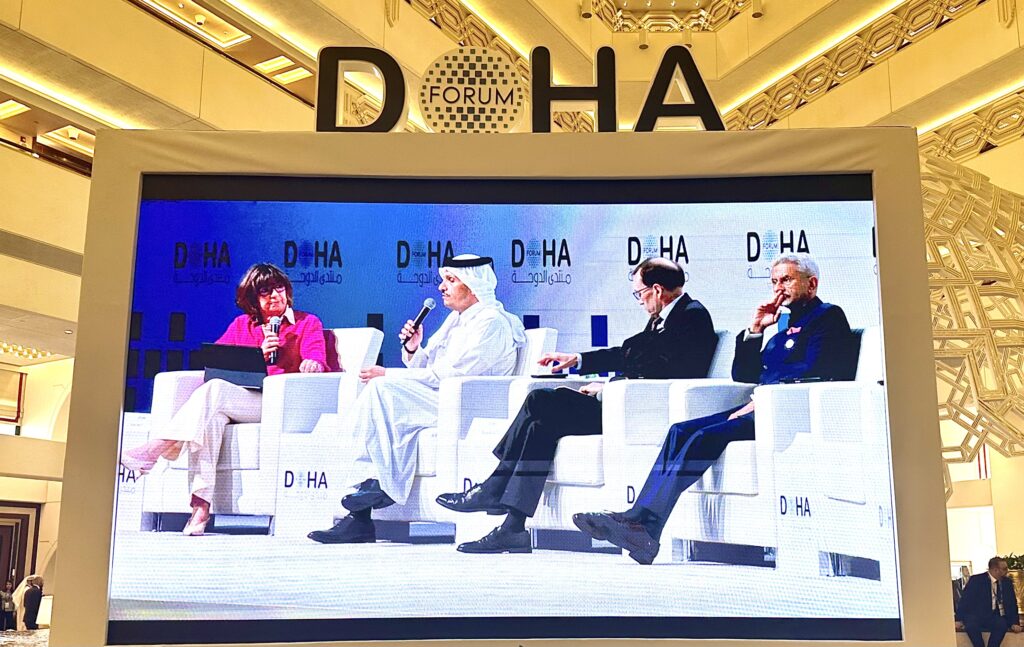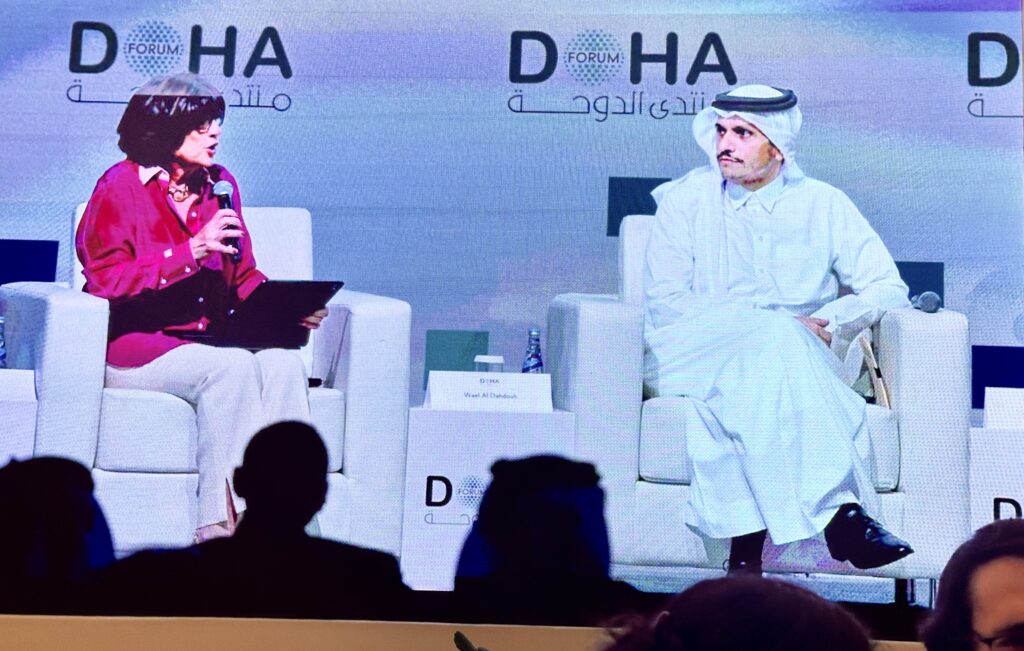



DOHA: Qatar’s Prime Minister Sheikh Mohammed bin Abdulrahman bin Jassim Al-Thani, speaking at the Doha Forum in Qatar on Saturday, said it was “a very important and critical period in our region” and warned that conflicts in the region could spread.
“We’ve been trying to warn everyone around the world that this situation is going to expand and is going to have consequences for the entire region,” Sheikh Mohammed said. “Anyone who eliminated the fact that Syria is away from the conflict was mistaken.”
The Prime Minister said an opportunity was missed when the war in Syria calmed down two years ago, “but President Assad of Syria failed to grab the opportunity to start engaging and restoring his relationship with his people.”
“This situation might evolve and become more and more dangerous,” the Sheikh warned. “Our worry is that will bring us back to the old cycles of violence. There’s no sense of urgency to find a political framework for what’s happening over there and try to address the issue from a political perspective in order to find a sustainable solution.”
The weakening of Hezbollah and some of the so-called proxies of Iran, as well as Russia’s focus on the war in Ukraine, has led to a power vacuum in Syria, Norwegian Foreign Minister Espen Barth Eide said. He added that there was a danger that with President Assad’s armed forces being pushed back, Syria could become a failed state
“We have been warning that the conflicts in the Middle East would spread,” Eide said. “There have been many warnings to say that Syria was not over.”
He added that the humanitarian situation was “terrible and getting worse,” with people in Lebanon and Syria desperate to find refuge from war and conflicts in the region becoming “intertwined.”
“There have been too many groups in Syria, including the leadership, who have been thinking that they were about to win, so they were not ready to engage in compromise, but I think it is time to call for dialogue for a political settlement and to try to stop this before it really goes totally down the drain,” Eide stated.
Indian Foreign Minister Dr. Subrahmanyam Jaishankar reminded the audience that his country has $180 billions of trade with the Gulf region and 10 million Indians are living in the region.
“Why do I mention that?” he asked. “Because I think what’s happening in Syria, what’s happening in the larger region, what’s happening in Gaza and Lebanon, in Iran, the combination of all of this means there is a larger regional instability, which is growing month-on-month. We’re feeling the impact of this. We are feeling it in shipping costs, in great disruptions, in radicalization.”
“Today, instability anywhere is a source of concern. There’s no region you can say, ‘That’s far away and it doesn’t matter to me.’ This region is not so far away, and our interests are there, as I spelled out.”